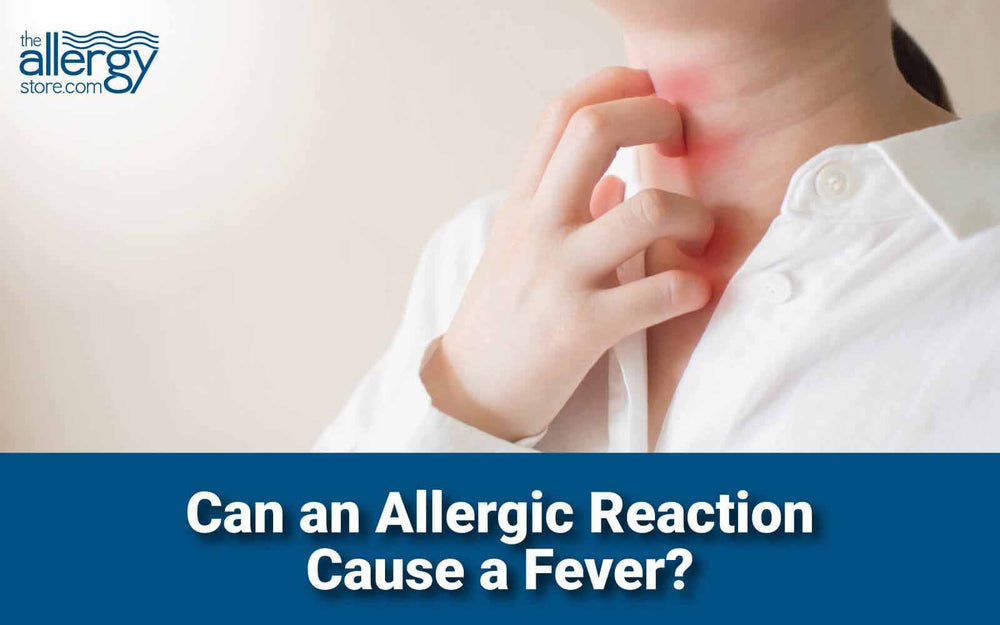
The symptoms of colds and allergies can be confusing. Often, they are very similar. But the one symptom that is never the direct result of an allergic reaction is fever. So, the answer to the question can you get a fever from an allergic reaction is No.
But that doesn’t mean that you can have a fever when you are suffering from allergies.
Fever as a Secondary Symptom of Allergy
When you have a fever along with your allergies it is the sign that something else is going on. The allergic reaction may have produced sinusitis. This is an infection of the sinus cavities and can happen when untreated allergies cause inflammation that prevents the sinuses from draining properly.
The fever you experience isn’t because of the allergic reaction. It is because the allergic reaction has resulted in an infection. You may be able to clear the infection with antibiotics, but if the allergies aren’t treated the infection can return and bring a fever with it.
If your allergies cause inflammation that results in fluid in the ear, you can get an ear infection. In this instance, the fever is a result of the infection of the ear. It’s not the allergic reaction that caused the fever it’s the infection that was caused by the allergic reaction.
Allergic Inflammation
The problem is allergies cause inflammation. Whether it is allergic rhinitis, eczema, or asthma the misery is caused by inflammation. Mast cells and basophils cause vasodilation, airway narrowing and hypersecretion of mucous.
The reaction can be early stage (within minutes) or late state (2 – 6 hours). This inflammation keeps eyes, sinuses and ears from draining properly. That gives bacteria a warm, moist place to multiply. That’s how you get an infection and the infection is what causes the fever.
Control Allergies to Prevent Infection
If you suffer from chronic sinusitis or have recurring ear infections or tonsillitis, it might be caused by allergies. Get the allergies under control and stop the inflammation that leads to the infections.
A visit to the allergist or even an ENT can help. Once you identify your allergic triggers you can take steps to avoid them. Avoiding the allergens stops the allergic reactions before they start.
Without the allergic reaction, you don’t have inflammation. Since you don’t have inflammation, you don’t provide an environment for bacteria to grow.
Allergy medicine such as decongestants help with inflammation and immunotherapy can increase your level of sensitivity to certain allergens. But if you have a fever, it’s not an allergy; it is an infection.
Til next time,
Cheryl

